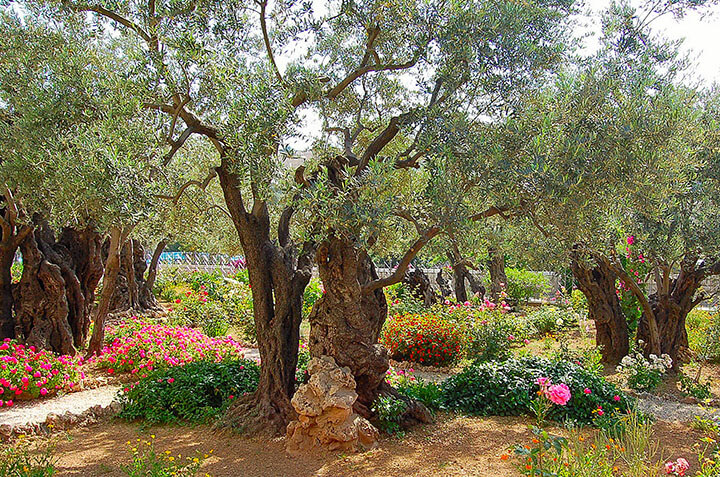… and began to be sore amazed, and to be very heavy. And saith unto them, “My soul is exceeding sorrowful unto death.” Mark 14:33-34 KJV
… and began to be very distressed and troubled. And He *said to them, “My soul is deeply grieved to the point of death; Mark 14:33-34 NASB
Mark’s description of the Lord in the Garden is worthy of our meditation. It is not the cross as yet, but it is anticipatory to it. Entering the Garden, we are told that the Lord began to be sore amazed and very heavy. “He began” — an emotional experience that would not end until it culminated at the cross. As we see Him in the agony of soul that Luke describes, we must remind ourselves that this was only the beginning.
He began to be “sore amazed.” Lexicons give varying definitions here, but all agree that it includes a sense of awe, wonder, and amazement. The reality of all that the next few hours would bring seems to burst upon His tender heart with fresh pathos. How do we reconcile the omniscience of the Son of God with the fact that He chose to pass through life and experience events as a real man? I cannot. Knowing all that lay before Him, He still endured the grief and sorrow when the occasion arose. His omniscience did not shield Him from sorrow; it intensified His sorrows.
We read also that He was “very heavy.” The word denotes an extreme distress of mind, a tremendous burden weighing down on Him. All had been known to Him, but as the hour drew near, the thought that He would soon know an interruption of the enjoyment of fellowship with God, an enjoyment that had been unbroken and unsullied throughout eternity —that awareness broke upon His soul like a mighty avalanche of grief. He was “very heavy” with the burden of what lay ahead.
“Exceeding sorrowful” literally means surrounded by sorrow on every hand. As He looked around, He was aware of a disciple who had delivered Him up. Then, there was a disciple who would soon deny Him. And then ten disciples who would desert Him. All around, He was surrounded by sorrow. Then He would consider the sorrow that His own nation would cause – their hatred, malice, and rejection, not only of Him but of His Father (John 13:20). Fueled by Satanic evil, the venom of their words and the violence of their actions would rise to new heights or perhaps new lows, as the inherent evil in the human heart was now given free rein (Luke 22:33).
But the greatest sorrow surrounding Him was the awareness of what the six hours on the cross would mean. He would be made sin, endure the curse of a broken law, and become a propitiation for sin. All of this would demand enduring the stroke, experiencing the sword of divine judgment and the crushing of punishment, and the separation from God that must ensue.
Surrounded by sorrow, He moved forward from Gethsemane to Golgotha to not only anticipate what caused these extremes of emotions but to endure it in reality!
I take the expression “exceeding sorrowful unto death to mean that the sorrow was so great that a natural man might well have died from the intensity of it. All of this gives us a little insight into the suffering of the Lord Jesus for us.
Consider
Compare the descriptions of the Garden scenes as recorded by each of the Gospel writers and note the differences.



Thanks, Sandy. Excellent thoughts for meditation from Mark’s Gospel.
Thank you, brother Sandy.